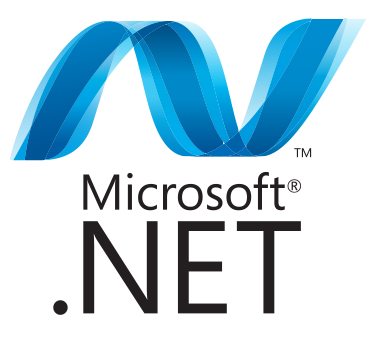
.NET software development services cover the design and development of Web, mobile, and desktop applications with the use of the .NET platform.
With .NET applications, just-in-time compilation (JIT ) converts the managed code (compiled intermediate language code) into machine instructions which are then executed on the CPU of the computer. The CLR provides additional services including memory management, type safety, exception handling, garbage collection, security and thread management. All programs written for the .NET Framework, regardless of programming language, are executed by the CLR.
Code that’s executed by the CLR is sometimes referred to as “managed code,” in contrast to “unmanaged code”, which is compiled into native machine language that targets a specific platform.
Just-in-time compilation (JIT) causes a slight to noticeable delay in the initial execution of an application, due to the time taken to load and compile the bytecode. Sometimes this delay is called “startup time delay” or “warm-up time”. In general, the more optimization JIT performs, the better the code it will generate, but the initial delay will also increase. JIT has the overhead of an interpreter and the additional overhead of compiling and linking (not just interpreting).
The Native Image Generator (Ngen) by Microsoft is an approach at reducing the initial delay. Ngen pre-compiles (or “pre-JITs”) bytecode in a Common Intermediate Language image into machine native code. As a result, no runtime compilation is needed. In some cases the execution will be significantly faster than with JIT.
.NET Application Advantages
Using the .NET application development platform dramatically reduces the development time of desktop applications, websites and web applications and the amount of code required to develop large scale applications. With built-in Windows authentication and per application configuration, applications developed in .NET are safer and more secure to start with.
The .NET framework provides better performance by taking advantage of native optimization and caching services.
.NET Application advantages include:
- High reliability
- Enhanced security
- .NET applications utilize compiled code which means applications run faster with more design time errors caught during development.
- .NET has an extensive set of built-in controls and class libraries that enables the rapid development of applications.
- Allows the creation of user-defined controls, that can further extend inherent capabilities.
- Enables the use of true object oriented design for programming pages and controls, that allow the extending of existing classes with inherited sub-classes.
- Connecting to and working with data from a variety data sources is simple with .NET applications.
- Minimizes software deployment and versioning conflicts.
- Promotes safe execution of code, including code created by an unknown or semi-trusted third party.
- Eliminates the performance problems of scripted or interpreted applications.
The .NET frameworks supports Object Orientated Programming (OOP) which simplifies programming by making the code manageable and easier to test. It also eliminates unnecessary programming and generally means less coding for developers. The .NET framework makes it possible to easily reuse code and components, which saves time and reduces the development effort and cost.
C# Programming Language
C# is a core programming language supported by the Microsoft .NET framework. C# is a modern, object and component orientated, general-purpose programming language which is designed to create and use software components.
C# is widely used for rapidly developing desktop applications, web applications and web services on the Microsoft Windows platform. With the release of .NET Core, C# applications can be built and deployed on Linux environments as well.
Web development As a part of the .NET platform, C# is a natural fit for building dynamic websites and Web applications on Microsoft Windows servers. Its object-oriented nature facilitate code reuse and extensibility and makes it well suited for developing websites that accurately model business domains, have high efficiency and that are easily scalable.
See Custom Web Development with ASP.NET
Since its origin, C#, has added features to support new workloads and emerging software design practices.
Several C# features help create robust and durable applications:
- Garbage collection automatically reclaims memory occupied by unreachable unused objects.
- Nullable types guard against variables that don’t refer to allocated objects.
- Exception handling provides a structured and extensible approach to error detection and recovery.
- Lambda expressions support functional programming techniques.
- Language Integrated Query (LINQ) syntax creates a common pattern for working with data from any source.
- Language support for asynchronous operations provides syntax for building distributed systems.
Conclusion:
.NET application development services provide an efficient way to quickly create reliable business functionality, that is safe, secure and fast.
Our custom .NET application development services help businesses to work with a variety of data and make information related to their business and products or services easily available to a large number of users.
We have more than 18 years of experience developing .NET applications and provide business-critical .NET application development services with strict requirements for performance, availability and security.
Our .NET application development services include:
- Desktop applications
- Cloud based applications
- Web applications
- IoT applications and embedded systems
- Сross-platform mobile apps
- Database applications
- Application Programming Interfaces (APIs)
Contact us to learn more about custom .NET application development services for your business.
References: